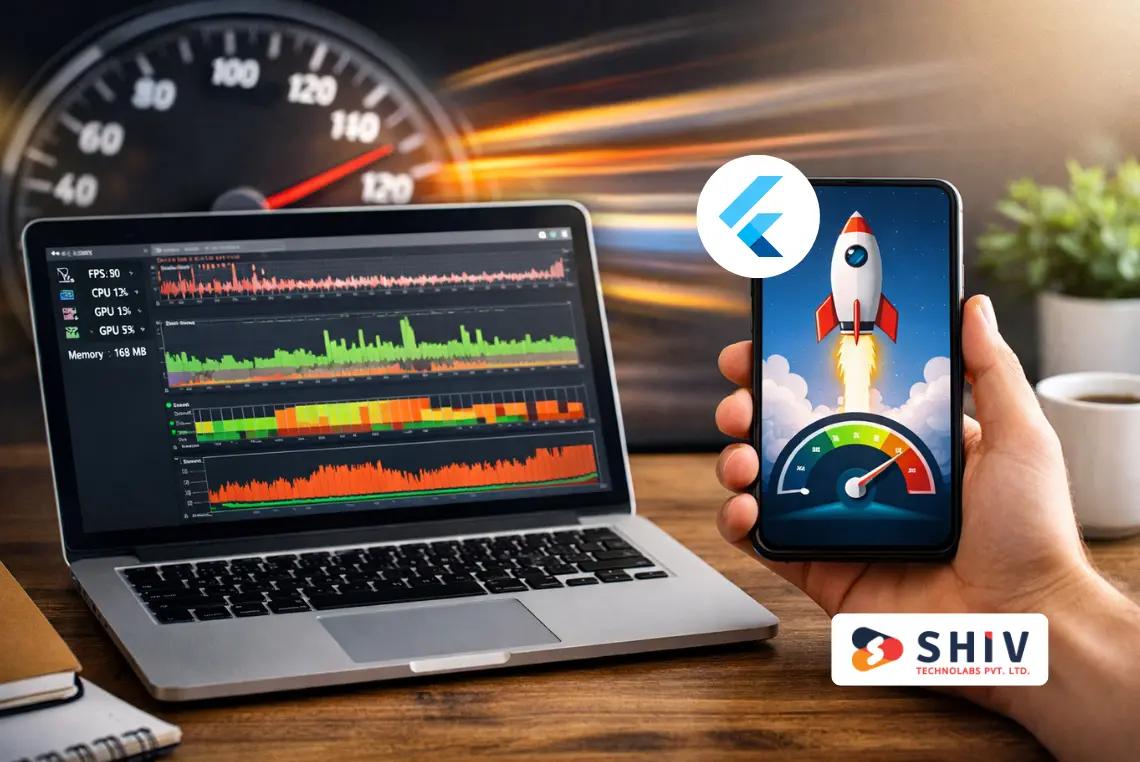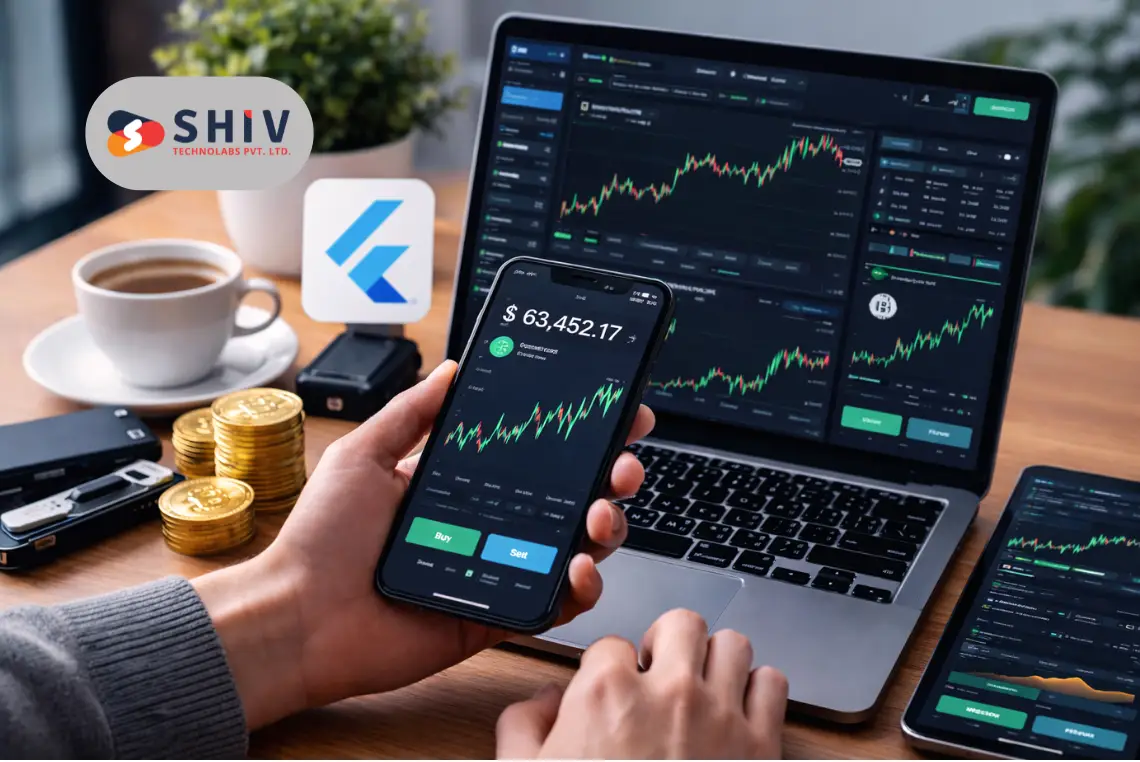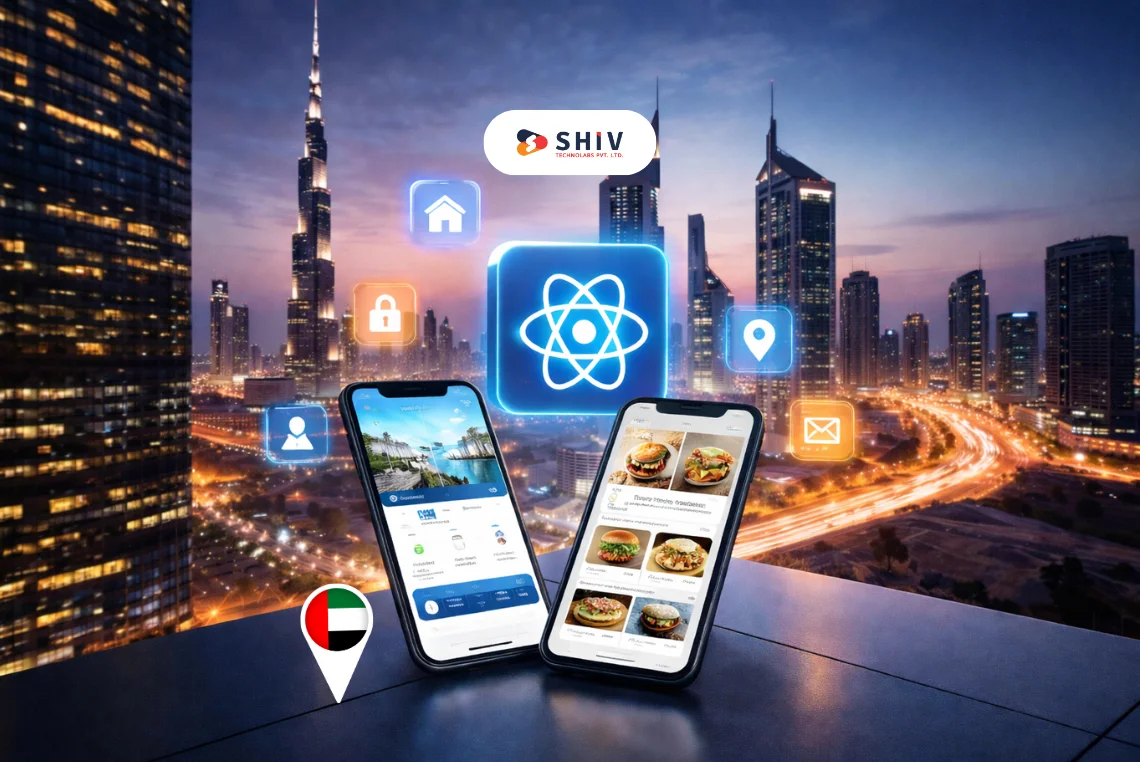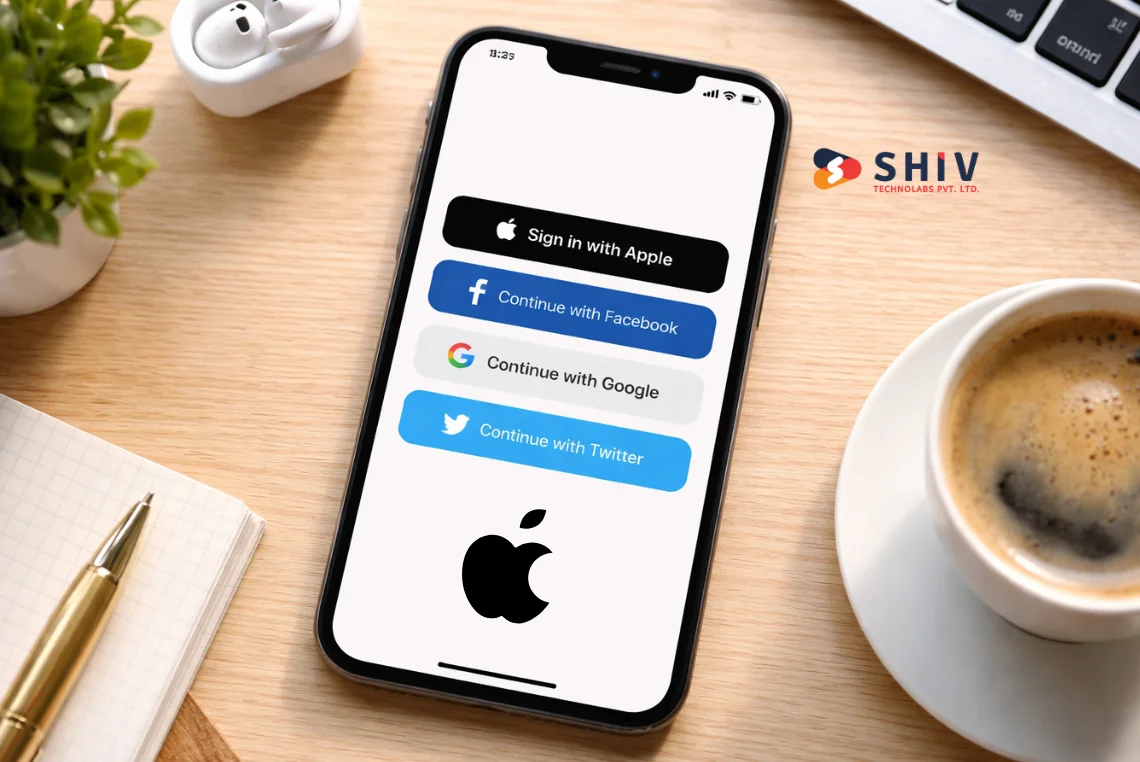Table of Contents
Mobile applications are a fundamental aspect of buying, talking, learning, and conducting business today. You can find them anywhere. According to reports, mobile app development outsourcing is expected to surpass $124.20 billion by 2030. This is an indication of the pace at which the mobile world is expanding.
However, quality applications are not built overnight or on a shoestring budget. Many startups, as well as large businesses, struggle to find talented individuals, establish effective infrastructure, and launch an app without incurring significant expenses.
This is the reason why outsourcing is a recommended choice. It does not revolve around saving money.
Let’s look at it closely.
Why Businesses Outsource Mobile App Development
Outsourcing is not just an easy way out. It’s a planned move. Startups and large firms outsource their app projects to experienced offshore or local teams to achieve better results with less effort.
Talent Availability
Hiring skilled people near you is tough and costly. When you outsource, you gain access to a broader pool of trained individuals from around the world. These teams often include developers, designers, testers, and system experts. You don’t have to find each one on your own.
Budget Control
In-house hiring adds up fast. You pay for salaries, equipment, licenses, and office space. With outsourcing, you agree on a budget and only pay for the work done. There are no surprise bills or extra charges.
Faster Time to Market
Speed gives you an edge. Outsourced teams already have access to tools, tested systems, and established team workflows. They are used to working in short sprints and testing quickly. This helps launch the app faster than if you were to build a team from scratch.
Flexibility in Scaling Up/Down
You can easily bring in additional people when needed during the project. You can also slow down after launch if you desire to. You don’t have to hire or fire anyone. You pay based on how fast you want to move.
Report indicates that approximately 70% of businesses outsource to reduce costs. However, saving time and staying flexible are now just as important.
Cost Benefits of Outsourcing Mobile App Development

Outsourcing cuts costs, but not by lowering quality. It helps avoid waste. Here’s how it makes financial sense:
No Infrastructure or Hiring Costs
You don’t have to rent new office space or buy hardware and licenses. Outsourcing team is responsible of their own setup, tools and HR problems.
Pay-Per-Project or Milestone-Based Pricing
You can agree on a clear price based on tasks or goals. This helps you plan better. Most outsourcing firms charge only after certain parts are finished, so you know what you’re paying for.
Access to Low-Cost Development Zones
Countries like India, Vietnam, and some in Eastern Europe have great developers at much lower rates. These teams often charge 60% to 70% less than Western teams but still deliver good results.
Fixed Quotes vs. Unpredictable In-House Budgeting
Hiring your own team comes with extra costs like job ads and bonuses. The teams that are outsourced tend to provide specified quotes, which makes you stick by your budget throughout the entire project.
In-house vs. Outsourced App Development Costs
The table below compares the key cost differences between hiring an in-house team and outsourcing your app development.
| Expense Category | In-House Team | Outsourced Team |
|---|---|---|
| Developer Salaries | $80,000–$150,000/year per developer | $20–$50/hour (India, Eastern Europe) |
| Infrastructure | Office rent, tools, software licenses | Included in vendor fee |
| Hiring Time & Cost | 1–3 months + recruiter fees | Instant team availability |
| Flexibility | Difficult to scale quickly | Easily scale up/down |
| Project Delivery Time | Longer due to setup, onboarding | Faster with ready-to-deploy teams |
| Overall Cost (12-month app) | $200K–$400K+ | $50K–$120K |
How Mobile App Outsourcing Saves Time
Speed is important, particularly when you have to go to the market quickly or be able to explore an idea before the funds dry up. Outsourcing helps reduce delays at every step.
Ready-to-Work Teams Skip Hiring Delays
You don’t have to wait for job posts, interviews, and notice periods. The team is ready to work on day one.
Pre-Tested Tech Stacks and Frameworks
Outsourced teams use tools and methods they’ve tested before. You don’t waste time figuring out what works.
Parallel Task Execution (Dev, QA, UI)
The design, development, and testing can happen together. This helps save time instead of waiting one part to be complete at a time.
Time Zone Advantage (Work Continues 24/7)
If your local team sleeps, your outsourced team works. For example, a US company can share feedback at night and wake up to new updates.
Example Use Case:
A US startup works with a firm in India. They send review points at night and receive the next version of the app by morning. This moves the project forward every day without pause.
Common Mobile App Outsourcing Models and Their Benefits
It is possible to select a model that will suit your needs as well as your budget. Here are the main types:
Dedicated Team
- Long-term setup
- Full access to progress
- Works well for big, ongoing projects
Fixed Price
- Clear cost
- Fixed work plan
- Good for short or simple apps
Time & Material
- Flexible features
- Best for MVPs and changing needs
- You pay for actual hours used
Potential Challenges in Mobile App Outsourcing and How to Handle Them

Outsourcing isn’t risk-free. But if you manage it well, you can avoid most problems. Look out for these and plan ahead:
Communication Gaps
Different time zones or languages can slow things down.
Tip: Use tools like Slack and Zoom. Keep daily updates and clear notes.
Time Zone Coordination
If you and your team are far apart, it’s hard to find time to talk.
Tip: Set 2–3 hours of overlap. Use shared calendars and async tools.
Data Security Concerns
Working with outside teams can raise questions about data safety.
Tip: Use NDAs, secure systems, and clear legal agreements.
Quality Control
Outsourcing doesn’t mean giving up control.
Tip: Make weekly goals, monitor achievements frequently, and test yourself, when necessary.
Read more: Mobile App Development – Complete Process Guide 2025
When to Outsource Mobile App Development
Outsourcing is not only limited to large technological companies. It helps any team that needs fast results without the heavy cost of in-house teams. You should think about outsourcing if:
Tight Deadlines
You need a working app in a few weeks. Hiring and training your own team will take too long.
Limited Budget
You have limited funds, such as $50,000, and want to build a full app. Hiring locally will not fit the budget.
Lack of In-House Talent
You don’t have mobile developers or designers in your team, and building a full team is not possible.
Need for Fast MVP Launch
You want to test your app idea quickly and improve it later. Outsourcing lets you do that without delays.
Turn Your Mobile App Idea into Success
Want a mobile app that’s ready quickly, works well, and fits your budget? Shiv Technolabs can help. We build apps for iOS, Android, and cross-platform systems that are safe, fast, and built to scale.
We help startups and big companies turn ideas into reality — with a strong focus on speed, cost, and quality.
- Developers are ready to start
- Pricing that suits your needs — fixed, hourly, or goal-based
- Fast work with full support
- Clients in over 30 countries
- Help from idea to launch and beyond
Don’t hire just anyone. Work with experts who deliver real results and help your business grow.
Conclusion
Outsourcing your mobile app project doesn’t just save money. It helps you launch faster, grow smartly, and stay focused. Whether you need an MVP, want to enter new markets, or aim to build the next top app, outsourcing gives you the power to do so.
Looking for the best mobile app development services with speed, experience, and affordable pricing? Choose Shiv Technolabs. We bring you skilled developers, clear pricing, and fast delivery — without the hassle of managing full-time staff. Build your app the smart way.























